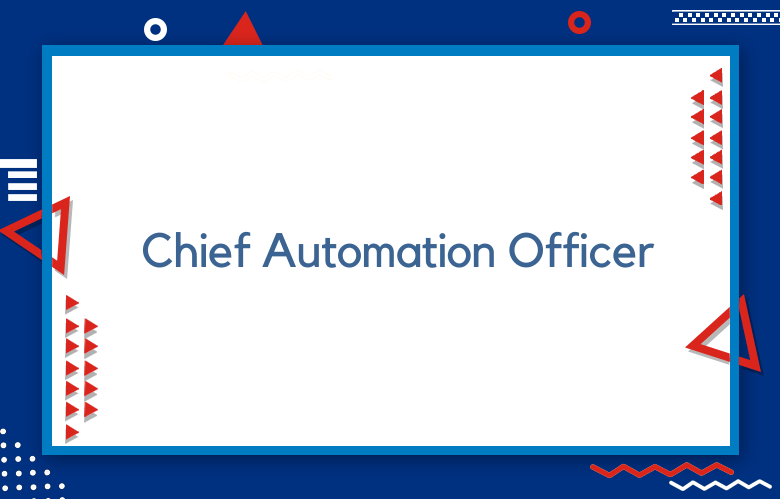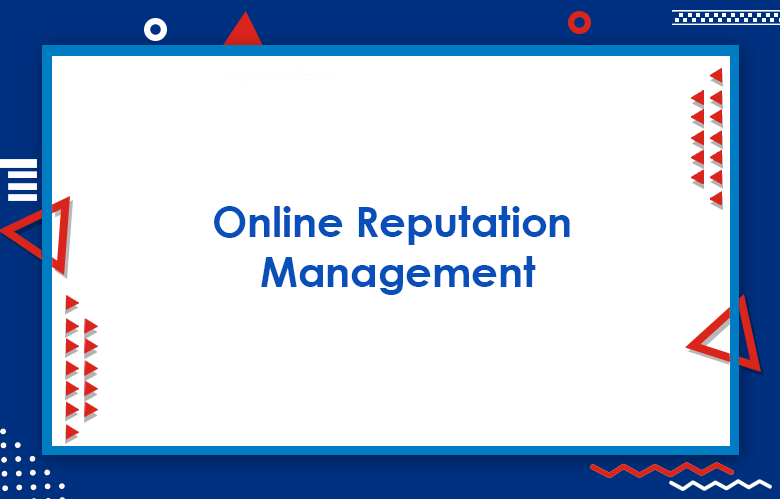Chief Automation Officer: How can the Chief Automation Officer help in business operations?

There are many ways the Chief Automation Officer can help in business. First, automation is not just about doing things faster or cheaper. It’s also about eliminating repetitive tasks so that humans can focus on more important work for their company.
Second, automation enables companies to have a better customer experience by taking care of routine requests through self-service options whenever possible. Finally, it provides businesses with higher levels of security and compliance because the software automatically follows the rules they set up instead of relying on human error.
For a company with an organization in the scope of a Chief Automation Officer, it is essential to understand what this role entails. The Chief Automation Officer’s primary goal is to help automate tasks and processes that are tedious or time-consuming for employees.
This can be done through programming or designing systems that require little oversight from humans. In this blog post, we discuss the benefits of automation in business and how it can affect your bottom line.
What is a Chief Automation Officer
The Chief Automation Officer is the person responsible for overseeing the automation strategy of an organization.
The primary role of a Chief Automation Officer is to manage the company’s automated systems. In addition, they will be responsible for automating processes and managing staff who are working on automation projects.
A Chief Automation Officer is a role or job title in which the person is responsible for automating tasks using the software. They use technology to automate business processes, and they must also ensure that their company can continue operating effectively even when most people aren’t.
A Chief Automation Officer is someone who works with automation to improve efficiency.
The Chief Automation Officer (CAO) is the executive in charge of automation systems. As such, they must understand how various technologies can be used to automate business operations and processes.
Why would companies want to hire an Automation Officer?
Automation is one of the most popular trends today. As more and more companies start to automate, they must have a professional who ensures everything runs smoothly.
To solve the problem of low staff morale, companies are turning to automation.
Automation officers (automation engineers) are required to automate tasks and systems for the company. This is done through programming, which gives companies more time to focus on other issues, such as expansion and research.
As the workforce continues to change, automation has been a growing trend. Many companies have begun to automate their business processes. This is why an Automation Officer job will become more and more valuable in the market.
An automation officer will help automate the business processes. This means that companies can get more work done with fewer employees, saving money on labor costs.
How can the Chief Automation Officer help in business operations?
The Chief Automation Officer functions as a strategic partner and thought leader who can help the company take advantage of automation and artificial intelligence.
The Chief Automation Officer can help in eight ways. The first way is to ensure automation is integrated into all company processes.
The Chief Automation Officer helps in business operations by making the employees more efficient and productive.
First, the Chief Automation Officer can help ensure that your company’s IT support is working at its best. This person will also make sure all of your software and computer systems are running well. In addition, the COO protects against cybercrime.
The Chief Automation Officer (CAO) automates business operations. CAOs use artificial intelligence, machine learning, and natural language processing to analyze vast amounts of data and generate insights that help run businesses more efficiently.
The future of automation and human input
Advances in artificial intelligence have been made, but they aren’t yet when they can replace human input. Instead of automating tasks and leaving workers unemployed, we should look to build machines that work together with humans.
Human input is, of course, still needed in most cases. You can’t have a robot do everything for you. But I predict that the future will involve more and more automation as technology improves.
The future of automation and human input will be determined by the ability of humans to adapt themselves to a world full of technology. This is no simple task because we must consider not only how our minds work but also what it means to be considered.
I am a massive fan of automation, and I think it will be the future. However, we can’t forget about human input because we won’t live without people in the real world!
We will see a lot more about automation and robotics. These innovations will allow humans to spend their time creatively instead of doing menial tasks.
The benefits of automation in the workplace
Automation in the workplace has made our lives easier. Robots can work 24/7, don’t need breaks, and are less likely to make mistakes than humans.
The benefits of automation in the workplace include but are not limited to, increased efficiency, decreased errors, and improved safety.
The use of automation software has made businesses more efficient in completing tasks. It also allows them to focus better on the task at hand instead of worrying about other things like paperwork and filling out reports. Automation software can be used for data collection.
The benefits of automation are that it can work faster, more efficiently, and safer than humans. Because of these reasons, people have started to use machines in the workplace to increase production.
How to become a Chief Automation Officer
Become a Chief Automation Officer by making sure that the machines in your company are always working. You must be familiar with all of the automated systems in place, and you should ensure they are effective.
Things you can do on the job as a Chief Automation Officer
- Create a plan for the company’s automation strategy
- Build and maintain an automated infrastructure system
- Ensure that your team is using best practices to build automation systems
- Train employees on how to use new technologies in their jobs
- Design and implement automation systems
- Develop the company’s automation strategy
- Monitor the performance of automated processes to ensure they are working properly.
- Train employees on how to use new technology
- Automate as many tasks as possible
- Find ways to optimize company resources
- Always be looking for new opportunities to automate processes, even if it’s not your responsibility.
- Work with other departments in the company to find out what they need to be automated.
- Work with other departments to understand what they need and how automation can help them.
- Develop a strategy for implementing automation into your company’s workflow.
- Help decide which technologies are best suited for automating specific processes based on their cost, performance, scalability, reliability, interoperability, and security requirements.
- Train staff on new software or hardware that will be used in the workplace
- Develop an automation strategy for your company
- Research and implement new technologies to make the company more efficient
- Create a budget for automated projects, including the cost of staff time
- Implement best practices in automation-related fields like artificial intelligence or machine learning
- Collaborate with your team to come up with new ways automation can be used in the company
- Help create a roadmap for how automation will be implemented, including timelines and budgets
- Create reports on what has been accomplished so far and what is still left to do
- Make sure that all employees are trained on the changes happening within the company
- Create a roadmap for automation
- Determine the best way to automate tasks and create an implementation plan
- Identify and evaluate vendors, including their costs and capabilities
- Evaluate data sources and processes, including how they can be automated or augmented with technology solutions
- Develop standards for the development of new technologies
- Use data to drive decisions and measure outcomes
- Create a culture of innovation and experimentation
- Ensure the organizational structure is in place for continuous learning, development, and improvement
- Develop metrics that will enable your organization to know when it’s time to pivot or change direction
- Develop a strategic plan for the company’s automation
- Implement new systems that will allow for better automation
- Monitor and improve the efficiency of systems already in place
- Create an actionable list of goals to be completed by employees
- Create a plan for the company’s automation needs
- Make sure everyone in the company is trained on how to use new software and technology.
- Keep track of all tasks that need to be done, as well as progress made on those tasks.
- Continually update the company’s automation strategy.
Conclusion
What is the Chief Automation Officer? The C.A.O, or “Chief Automation Officer,” has emerged in recent years as a critical player for business success and growth. This role was born out of the need to create efficiencies by automating manual tasks that are time-consuming and expensive.
It cannot be easy to see how it will help your company until you have someone on board who understands what needs automation, where they should start with their efforts, and why this is important for moving forward.
If you are looking for marketing technology consulting services, I am available for consultations! Get in touch today if you want more information about my offerings or want me to come to give a presentation at your next event!
Call: +91 9848321284
Email: [email protected]



